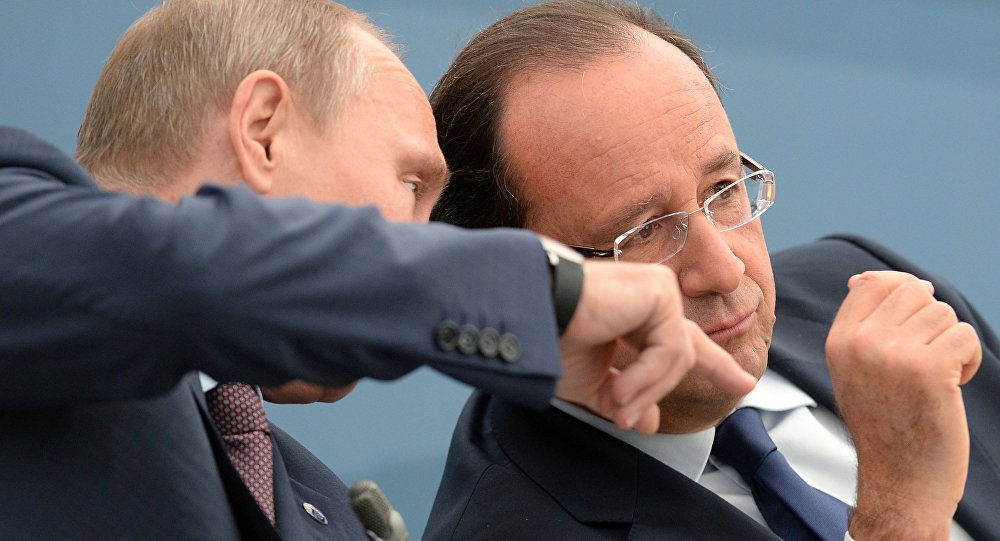Although both Russia and France agreed to join forces in the fight against ISIL, the unwillingness of the French government to work with the government of Syrian President Bashar al-Assad remains a major stumbling block, according to Sputnik.
After their meeting in Moscow, Russian President Vladimir Putin and French President Francois Hollande agreed to form a broad international coalition to fight Islamic extremism in the Middle East. The two countries would from now on share intelligence data on terrorist groups in Syria and Iraq.
“We agreed that our military and intelligence services will carry out more intensive contacts. This agreement was reached yesterday. We will monitor how effective these contacts are,” Russian presidential aide Yuri Ushakov said on Friday.
However, for an effective international anti-terrorist operation to get rolling France needs to understand that al-Assad should remain in power in Syria.
“The coalition needs to recognize that President Assad is in place in Syria [and] that he’s the internationally-recognized president of that country who represents the government which is fighting terrorists”.
In other words, without the support of al-Assad the international coalition won’t be able to effectively crush ISIL and other extremists in Syria.
Russia has supported al-Assad ever since the Syrian conflict broke out several years ago. But the United States and its allies saw the Syrian President as the cause of “instability” in the country and wanted to “overthrow” his government.
That was the wrong strategy to pursue, Russia, unlike the United States, always understood the importance of fighting actual terrorists, such as ISIL and al-Qaeda-backed groups who’re doing the harm, and not the secular government of al-Assad.
The idea that the government of al-Assad was “behind the Syrian conflict” is now outdated, but Washington is still unwilling to or incapable of understanding this notion.
After the Paris terrorist attacks, France now understands that ISIL is a real threat. The Assad government didn’t carry out attacks against French citizens in Paris, but ISIL did.
“An alliance between those countries, which are serious about tackling the actual problem [ISIL] rather than just focusing on removing governments that America may or may not like, is actually the way forward”.
Another important step the coalition should consider is to cut funding going to terrorist groups from the countries of the Persian Gulf, which are Western allies. The EU needs to use its political influence to stop terrorist funding coming from these countries, otherwise Europeans need to reconsider their relationships with these allies.
“We need to assess who are real friends are”.

